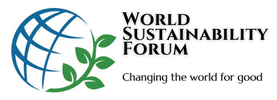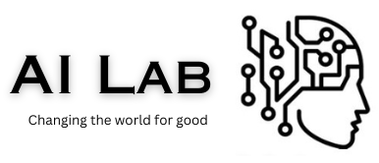Changing the World for Good, the World Sustainability Forum's Artificial Intelligence (AI) Laboratory is transitioning a portfolio of innovative ideas and concepts into high impact AI solutions.
Responsbile AI holds significant potential to positively contribute to the United Nations's Sustainable Development Goals (SDGs) across various sectors. AI technologies can enhance efficiency, accuracy, and innovation in addressing global challenges. In healthcare, AI can assist in early disease detection, treatment optimization, and resource allocation, contributing to SDG 3 (Good Health and Well-being). In education, AI-augmented tools can facilitate personalized learning experiences, improving access and quality of education (SDG 4 - Quality Education). AI applications in agriculture, such as precision farming, can enhance food production and reduce environmental impact, aligning with SDG 2 (Zero Hunger) and SDG 13 (Climate Action). Moreover, AI-augmented data analytics can improve risk management, strengthen decision-making processes and policy formulation, supporting various SDGs related to poverty reduction, gender equality, clean energy, and industry innovation. To maximize these benefits, ethical, explainable AI deployment, regulatory frameworks, and global collaboration are essential to ensure that responsible AI advancements align with sustainable development principles and prioritize inclusivity.
Responsbile AI holds significant potential to positively contribute to the United Nations's Sustainable Development Goals (SDGs) across various sectors. AI technologies can enhance efficiency, accuracy, and innovation in addressing global challenges. In healthcare, AI can assist in early disease detection, treatment optimization, and resource allocation, contributing to SDG 3 (Good Health and Well-being). In education, AI-augmented tools can facilitate personalized learning experiences, improving access and quality of education (SDG 4 - Quality Education). AI applications in agriculture, such as precision farming, can enhance food production and reduce environmental impact, aligning with SDG 2 (Zero Hunger) and SDG 13 (Climate Action). Moreover, AI-augmented data analytics can improve risk management, strengthen decision-making processes and policy formulation, supporting various SDGs related to poverty reduction, gender equality, clean energy, and industry innovation. To maximize these benefits, ethical, explainable AI deployment, regulatory frameworks, and global collaboration are essential to ensure that responsible AI advancements align with sustainable development principles and prioritize inclusivity.
Youth-centric artificial intelligence (AI) intersects with several dimensions of the Sustainable Development Goals (SDGs), reflecting its potential to address challenges and contribute to positive outcomes for young people globally and hopefully for the POP Movement in particular. Here are some key dimensions:
- Education (SDG 4 - Quality Education): Responsible AI (RAI) can enhance learning experiences through personalized education platforms, adaptive learning tools, and intelligent tutoring systems. It has the potential to improve educational accessibility, reduce disparities, and foster innovative teaching methodologies.
- Employment (SDG 8 - Decent Work and Economic Growth): RAI technologies can impact the job market, creating new opportunities while transforming existing roles. Empowering youth with AI skills and fostering entrepreneurship in AI-related fields contribute to sustainable economic growth and job creation.
- Healthcare (SDG 3 - Good Health and Well-being): RAI applications in healthcare, such as diagnostic tools, telemedicine, and health monitoring, can improve healthcare access and outcomes for young populations. AI-driven solutions can contribute to preventive healthcare measures and disease management.
- Environmental Sustainability (SDG 13 - Climate Action): Youth-centric RAI innovations can be harnessed to address climate challenges. AI-powered analytics, smart grids, and environmental monitoring systems aid in creating sustainable solutions for climate change mitigation and adaptation.
- Innovation and Technology (SDG 9 - Industry, Innovation, and Infrastructure): AI serves as a catalyst for innovation. Youth engagement in AI research, development, and entrepreneurship fosters technological advancements, driving progress in various industries and contributing to economic development.
- Social Inclusion (SDG 10 - Reduced Inequalities): Ensuring that RAI technologies are developed and deployed inclusively is crucial. Youth involvement in AI development helps in addressing biases, promoting diversity, and reducing inequalities in access to AI-driven opportunities.
- Peace, Justice, and Strong Institutions (SDG 16): RAI practices and governance frameworks are essential. Youth participation in discussions around AI ethics, policy-making, and ensuring responsible AI use contribute to building strong, transparent institutions.
- Global Collaboration (SDG 17 - Partnerships for the Goals): Youth-centric RAI initiatives benefit from international collaboration. Networking, knowledge exchange, and collaborative projects involving youth from diverse backgrounds contribute to achieving global SDGs.
Research Associates:
- Jeffrey M.G. Stokes, MSc, Machine Learning Engineer

